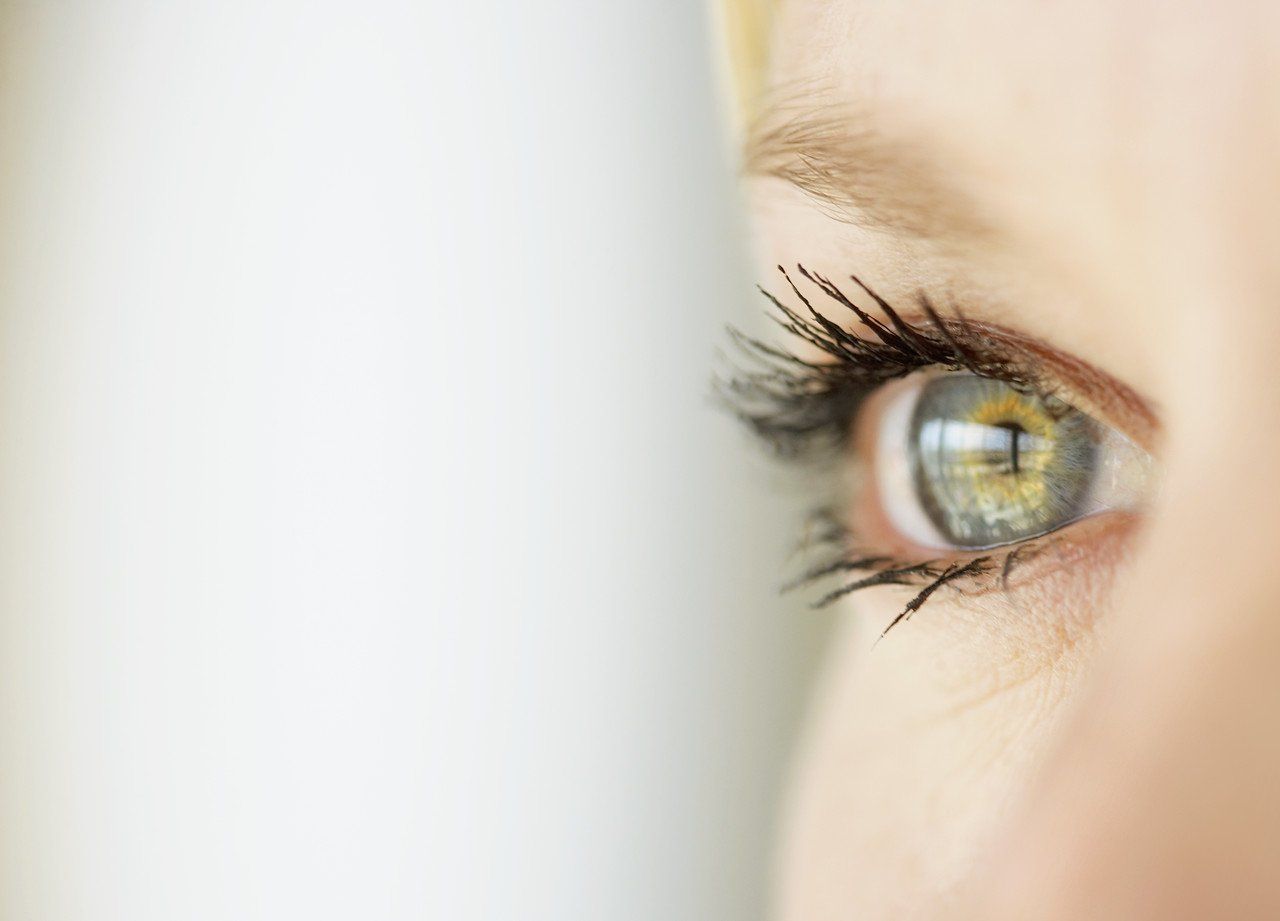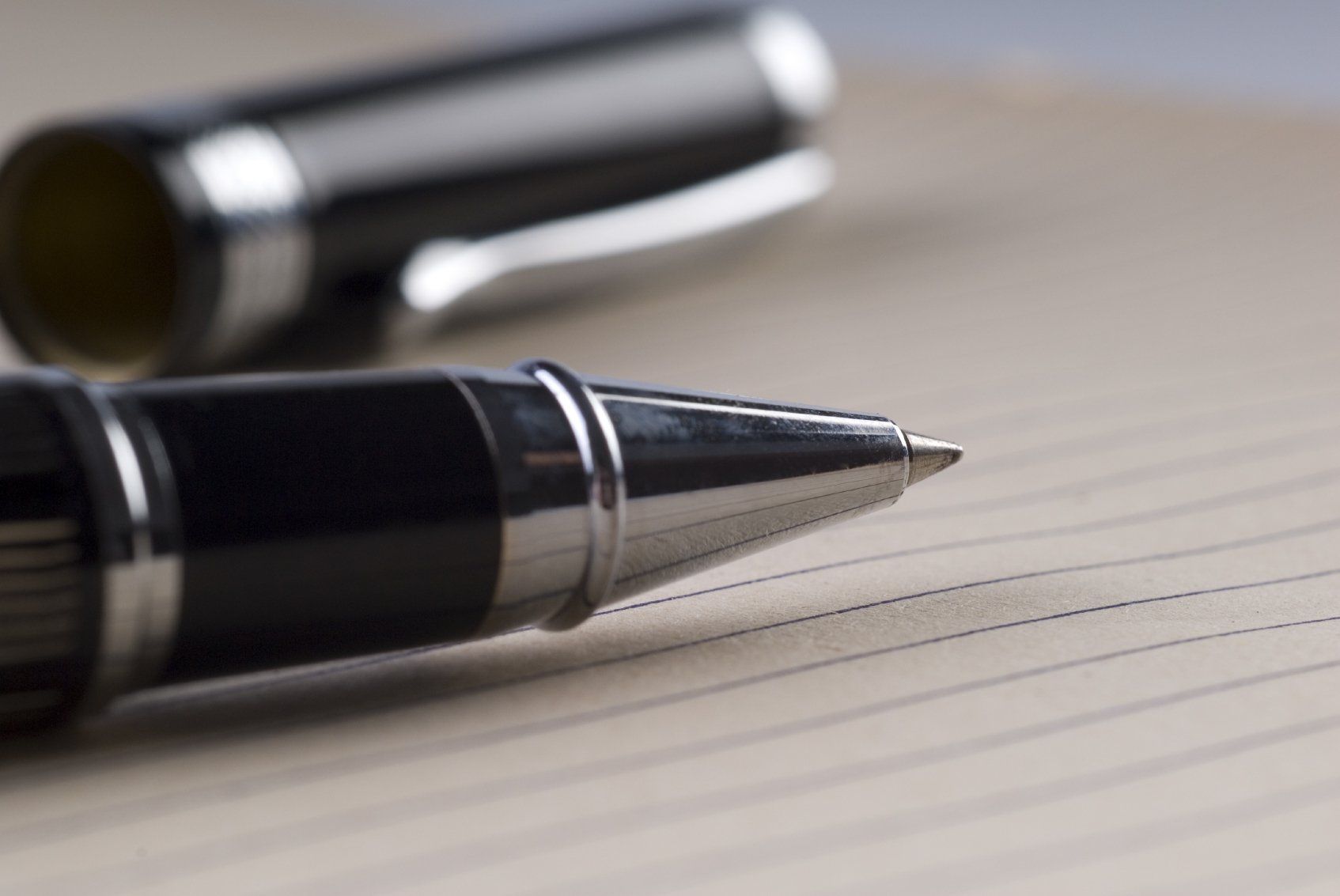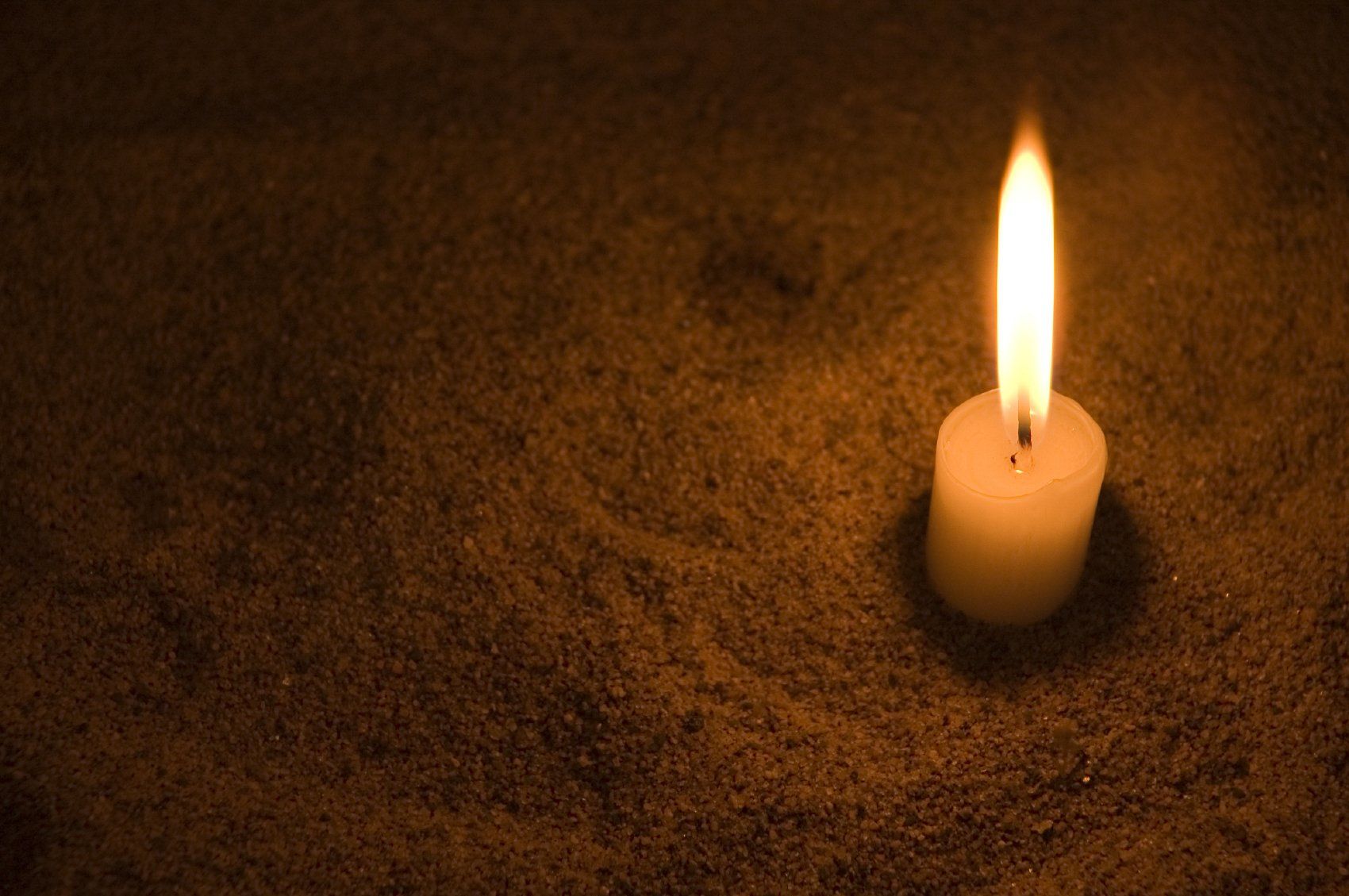Accredited Member
Changing lives, one step at a time

We all have those days when you know what you want but you don’t know how to get there. When disappointment tinges the edges of your consciousness because you can’t quite work out how to move forward. How to break your inertia. You feel stuck. Going in circles. But there is a way out of the quicksand. You do have the power in you to find the answers. And it’s not necessarily by asking Google. Finding the solutions, finding the breakthrough, is all about accessing the unconscious, throwing out ideas, any ideas, bad as well as good, stupid as well as clever. By brainstorming and coming up with as many solutions as possible we find the grain of gold amongst the mountain of sand. Don’t stop after three ideas, that’s just scraping the thinking off the tip of your conscious mind, keep going and going, till you’re digging deep, that is where the solutions lie. Which is why as a coach, my favourite question is “and what else?” repeated time after time. So, if you haven’t got a coaching session booked, and you want to unstick yourself from your inertia, try the following exercise. By brainstorming new ideas you’ll move closer to your goal or habit change. Do your best to come up with at least five actions or behaviours and then complete the following questions. Remember that in brainstorming just because you write it down doesn’t mean to say you have to do it! You’re looking for potential ideas to move you forwards. 1. Why are you brainstorming actions? What is your goal? I want to…… 2. Now thinking about your goal, write down 5 things you could STOP doing. 3. 5 things you could do LESS of. 4. 5 things you could KEEP doing. 5. 5 things you could DO MORE of. 6. 5 things you could START doing. Once you’ve finished the above, circle or underline the actions you like, or will do. Write down a day and a time in the near future when you will do them. Do let me know how you get on and if you want more help getting unstuck, contact me for a free 15 minute consultation.

Do you find yourself sabotaging professional or personal relationships? Or perhaps messing up an opportunity that could lead you to your goal? Self-sabotage is intentional or unintentional behaviour, thoughts or actions that prevent you from growing, personally or professionally, that inhibits your success or wellbeing. It’s a self-destructive pattern that stems from subconscious beliefs, fears and negative self-talk. In my last blog post I shared an exercise that can help with the inner critic and today, I’m going to share a simple method to help you overcome self-sabotage. This exercise comes from Struthless, a YouTuber with over 969K subscribers. Once he was a drug addict but he turned his life around and is now an illustrator, author and co-runs an animation studio. In this video he explains that self-sabotage often stems from childhood experiences that create negative self-worth, such as being ignored or abused as a parent. These negative beliefs conflict with reality, where the person is successful, leading to a cycle of self-sabotage. He then shares a four step practice to overcoming self-sabotage by sitting with negative feelings and addressing the root cause of negative self-worth. I thought it was worth sharing with you. Some of the thoughts that come up during this practice might be intense and uncomfortable. I encourage you to practice self compassion towards yourself. Step 1: Recognize the core beliefs you hold about yourself are not facts. The goal of this step is to recognize the negative beliefs you have about yourself and work to shift those thoughts into positive ones. 1. Make a chart with two columns on a piece of paper 2. Title the first column “Negative core beliefs” and the second column “The opposite” 3. In the first column, write down 3-5 negative beliefs you hold about yourself. These beliefs are ones that, rationally, you know are not true but on some level, you believe them. 4. In the second column, write down the opposite of each of the beliefs you listed in the first column. This might feel cheesy and awkward, but remember, no one is judging you. Step 2: Find evidence for each belief and its opposite. The goal of this step is to dive into the reasons you hold these negative self-beliefs and work to provide reasons you should actually believe the opposite. 1. Create a chart with four columns on a piece of paper 2. At the top of the first column, write down one of the beliefs you listed out in step 1 as a why question. For example, for an “I deserve to be rejected” belief, you would write down “Why I deserve to be rejected” 3. At the top of the third column, write down the opposite of that belief that you determined in step one as a why question. For example, “Why I deserve to be accepted” 4. For both of these columns, write down the evidence for those beliefs 5. At the top of the second and fourth columns write “The consequence that I’d bet money on” 6. In these two columns, think rationally and write down the consequence of each of the pieces of evidence you listed out. For example, the consequence of people finding out how weird you are is most likely acceptance. Step 3: Make an actionable final list of triggers, feelings, and actions. The goal of this step is to recognize negative thought patterns that you have and work to interrupt those patterns and break the cycle of self-sabotage. 1. Create a chart with three columns 2. Title the first column “positive experience” and the second column “negative feelings” 3. In the first column write down a positive experience you have had and in the second column, write down the negative feelings that arose during it. 4. Now, title the third column “next time I will remind myself that the reality is” and write down the positive self-talk you will say to yourself in response to the negative feelings you had Step 4: Treat yourself like someone you love. The goal of this step is to help you learn to love yourself in the same way you love those close to you. If your friend was succeeding in their career, would you tell them to quit their job? If your partner came home after having a bad day, would you remind them that they deserve it? If your child was doing well in school, would you tell them it was a fluke? No! You would never say these things to your loved ones. But, do you find yourself saying things like this to yourself? If you were someone you love, you would be forgiving and understanding to yourself. 1. On a piece of paper, write down some changes that you want to make 2. Next, write down why you deserve them For more detail and examples, watch the video “ Self Sabotage: Why you do it & How to Overcome it ” by Struthless’ . I hope this exercise helps you.

Do you struggle with your negative inner voice? Do you find that every time you start something new, or make a step towards a long-held goal, a critical inner voice chirps up? If so, you’re not alone. We all have an inner critic, and annoying though it is, it’s important to recognise it does valuable work. Your inner critic protects you from the pain of failure, it keeps you safe, it keeps you in your comfort zone and it’s super comfy there, right? But for the same reasons, it can hold you back, prevent you from growing, for we develop and blossom when we’re stretched, when we’re uncomfortable. We learn from pain. Plus, sometimes that inner critic is downright mean! Formed from a combination of opinions from our youth (our parents, our teachers, our sports coach), our brain has held onto any negative comment it can remember. We’re designed to do this, to remember the bad, that ability has saved us from sabre tooth tigers in the past. But constantly remembering negative feedback can reduce your confidence, increase your fear, and demolish your motivation. One of the best ways to quieten the inner critic is to laugh at it. Jamie Catto, author, film-maker, and musician, includes a great exercise for laughing at your inner critic, in his book, Insanely Gifted (definitely worth a read if you get the chance). Why not give it a try and have a giggle at your inner critic? You’ll need a quiet space, 25-30 minutes and some pen and paper. 1. Sit in a relaxed position, with your eyes closed if you feel comfortable doing so, and just listen to what your body is telling you, for three minutes. 2. Pick up your pen and write in your inner critic’s voice for five minutes with no judgement and no stopping. 3. Read out your inner critic monologue in one of the following voices – chosen at random. If possible, record yourself, so you can listen back to yourself. Do at least two voices, and ideally three. One of the voices has to be the cheesy game show host. Voices: A. Porn star in the middle of a scene B. Spoilt whining child C. Cheesy game show host D. Drunk/stoned person E. Fascist dictator 4. Listen back to the recording if you have one. Are you laughing yet? Can you really take this inner critic seriously? If you can stop laughing, write some alternative, positive comments on your paper. Thank your inner critic for protecting you but tell it, it isn’t needed any more. The inner critic comments are not the problem, it is our attitude to hearing the comments. By taking them personally we allow them to have power over us. By laughing them off we empower ourselves. If you want to continue working on your inner critic check out Byron Katie’s website (link on my resources page ) where she shares exercises you can work through. Or contact me for a free 15 minute consultation to discuss how coaching can help you.

If you’re working on your mental health by visiting a counsellor or therapist regularly, it may be worth upping your regular exercise too. A variety of research reviews, such as this one published in 2020, show that mixing mental-health treatment and a specific physical activity plan can lead to increased benefits for both physical and mental health. Some therapists may integrate nature into their appointments, combining sessions with a walk or forest bathing. Kids and teenagers may have therapy appointments whilst shooting hoops to help them open up or feel less self-conscious, but these type of sessions are not typical. However, combining traditional talking therapies with movement may well lead to better outcomes. For some, who might feel nervous when faced with a counsellor, therapist or coach, it may also help people feel more at ease whilst being active. When I’m coaching teenagers, I often find a walk and talk approach is more productive. And being in nature can often help clients relax and make associations that might not have come to them in a therapy room or in front of a computer screen. Though there’s a lot more research to be done on combining exercise with talking therapies, recent research reviews have concluded mental-health treatments are more effective when combined with physical activity. It’s not that the therapy has to be combined with exercise, though this is one option, the activities can be staggered, such as attending a coaching session then going for a run. It’s just that the combination gives added benefits. Exercise has a strong effect on mental health. Whether it’s the feel-good endorphins, the stimulation of nerve growth in the brain , helping cognitive health, the improvement of depressive symptons and better sleep, all positively impact our mood. The World Health Organisation’s 2017 report states if everyone in the EU got at least 150 minutes of weekly exercise, there would be 3.5 million fewer new cases of depression by 2050 – that’s 10% less than currently. It doesn’t matter what type of exercise you choose, the most effective is one you like. Exercise that includes a social element and is neither too challenging or too easy is the best to aim for. Personally, I love a bit of resistance training, and my local history run group, where a group of mums run for 5-10k, stopping often to hear snippets of local history, and where all running is done at chatting pace. A work out, a catch up and increased local knowledge, all at the same time. Leaves me with a smile on my face every time.

Since reading my last post on introducing more silence to your life you’ve developed greater creativity and concentration and are never distracted by noise, right? Don’t worry, I’m only kidding! Focusing your mind when surrounded by distraction is challenging even for the most experienced practitioners of mindfulness. But don’t fret, managing your attention is a skill that you can develop. The more aware you are of where your attention goes, the more capacity you’ll have to manage it. Once you start observing where it goes, you’ll see it moves with or without your conscious involvement. Your attention could suddenly move to how your body feels, whether happy or sad, or a raised heartbeat or the heat of a drink of tea on your tongue. Your attention might be caught by sounds in your environment, a phone ringing, typing on a keyboard, birdsong outside the window. Or your thoughts might dominate, “Can’t believe what I need to do before lunchtime” etc. Start small, focusing for a few minutes a day on where your attention goes. Ask yourself, “Where is my attention right now? On my body, the world, or my thoughts? Notice when your attention drifts and non-judgementally bring it back to being still in the present. By doing this over and over, for longer periods of time, you’ll increase your ability to direct your attention where you want it. To help bring yourself to the present moment, focus on a bodily sensation, such as breathing, or on one of your senses, such as touch, taste, sight, sound, or smell. By practicing strengthening your attention you’ll start spending more time in the present moment. This will help you become more focussed, reduce your stress levels, and improve your productivity. It’ll also help you reduce the amount of time you ruminate on past events or worry about future ones, improving your overall wellbeing. Don’t be too hard on yourself. No one can be in the present all the time. No one, not even a Zen master, can be aware of their attention all the time. Just by trying and becoming more aware of where your attention goes will create a positive shift in your life. Small steps of awareness are the key.

In my last blog post I wrote about the benefits of journalling. The beauty of journalling is that you can write about anything you want, without having to consider structure, grammar, or writing style. It’s a time and place for you. However, if you struggle to think what to write, you might find it useful to reflect on the following writing prompts to support your wellbeing. All of the prompts are coaching questions rewritten for journalling, to get you thinking about your life, how you feel about yourself and to encourage you to focus on what you want from life and how best to go about achieving that. Take one at a time and dive deep. You’ll be amazed at what comes out as you let the words flow. 1. Identify Things You're Grateful For. 2. Write a List of Your Coping Mechanisms. 3. Describe a Goal. 4. Write About How Different You Were Five Years Ago. 5. Write How You’d Like to Be Remembered. 6. Write a List of All the Things You Love About Your Life. 7. Write a Letter to Your Body. 8. List and Describe Your Emotions. 9. Write About How You'd Describe Yourself to a Stranger. 10. Write a letter of advice to yourself as if from a friend. If you do this exercise, do let me know how you get on!

Maybe you kept a diary as a teenager, maybe you write notes in your phone at times of stress. Writing down your thoughts and feelings, known as journalling, can help you understand them better, can help you reflect on patterns of behaviour, or can just get the stress from out of your head and onto the page. It can help you gain control of your emotions and improve your mental health. Journaling can help you: • Manage anxiety • Reduce stress • Cope with depression Journaling helps control your symptoms and improve your mood by: • Helping you prioritize problems, fears, and concerns • Tracking any symptoms day-to-day so that you can recognize triggers and learn ways to better control them • Providing an opportunity for positive self-talk and identifying negative thoughts and behaviours It can also help you identify what’s causing your stress or anxiety and help you create a plan to resolve your problems. Try these journalling tips: • Try to write regularly, whether it’s every day at night, or once a week. Set a reminder in your phone or download a journal app that sends you reminders. • Make it easy. Keep a pen and notebook in a handy place or keep your journal on your smartphone. • Write or draw whatever feels right. Your journal doesn't need to follow any certain structure. It's your own private place to let the words and ideas flow freely. Don't worry about spelling mistakes or what others might think. • Use your journal as you see fit. You don't have to share your journal with anyone. If you do want to share some of your thoughts with trusted friends and loved ones, you could show them parts of your journal. Keeping a journal helps you create order when your world feels like it’s in chaos. You get to know yourself by revealing your most private fears, thoughts, and feelings. Look at your writing time as personal relaxation time. It's a time when you can de-stress and wind down. Write in a place that's relaxing and soothing, maybe with a cup of tea. Look forward to your journaling time knowing that you're doing something good for your mind and body.

Whether it’s the loss of a loved one, loss of a job, loss of an imagined future, we can all struggle when faced with grief, challenging circumstances, an unpredictable world, inequality and an environment in crisis. Sometimes it can be hard to stay positive. Sometimes life can feel pointless, a fog descends and we have no motivation to do anything. At these darkest times, it’s important to note that even in tragedy and helplessness, we do have a deep capacity for hope. That sometimes we have to hit the bottom of the barrel, before we consider changing. There have been times when I’ve felt life couldn’t get any worse, but when I’ve looked back on those times, it was at those low points that I made decisions that led to deep change resulting in positive outcomes. “ Growth comes at the point of resistance. We learn by pushing ourselves and finding what really lies at the outer reaches of our abilities .” The Art of Learning, Josh Waitzkin Pema Chödrön, a Buddhist nun and bestselling author, teaches that, “ The source of our unease is the unfillable longing for a lasting certainty and security, for something solid to hold onto .” It’s very human to want something certain, knowable, solid to hang onto. It’s hard to hold uncertainty in your life, but it is also very normal. Pema teaches a method called ‘learning to stay.’ A mindfulness skill we can practice to increase our ability to work with ourselves in moments we’d rather not look at at all. It's simple, though not easy, this ‘learning to stay’ method. Read through the following steps and consider using them the rest of the week as an experiment. Acknowledge a situation where you’re stuck or triggered by trauma or loss. To be human is to be triggered. As you reflect on this situation, pause to notice your breathing. Note the quality of your breath – is it short, jagged, even or smooth? Fully feel the energy of your experience. Get curious about your sensing self by dropping into every one of your senses: taste, smell, sight, hearing, touch, and your inner, or interoceptive sense too. Notice what thoughts arise? In other words, how you’re talking to yourself. Ditto with feelings. Stay with your experience, noticing any itch to move away from it. Feel your energy, noting its ebb and flow. Be with it, embrace this experience fully (it doesn’t matter if you like it or not, as it’s already occurring in the present moment). Lastly, choose to release your experience, letting go of any tension with your next exhalation (your stuckness, discomfort, thoughts). If you’re going through a difficult time, remember to be kind to yourself. By showing yourself compassion you’ll cope with the situation better. I wish you well in your challenges.

Our lives are filled with things we ‘have to’ do, things we feel we ‘should’ do, which often doesn’t leave much time for fun or relaxing activity. Choosing to engage in simple, playful and intuitive art activities can encourage relaxation and mindfulness – bringing our focus to the present moment, away from stress and worrying thoughts. The following activities can be done by anyone, young or old, total beginner or experienced artist. Their aim is to relax and inspire. 1. Take your pen for a walk You will need: a pen; coloured pens or pencils; paper Using a pen or felt-tip, let go of structured thinking and draw one fluid, continuous line on your paper, making abstract shapes as you go. When you have finished, observe what you’ve drawn. Can you see any familiar outlines? Fill the shapes with block colour or patterns using coloured pencils or pens. 2. Mindful painting You will need: a selection of coloured paints; brushes, sponges and mark-making equipment; paper Try to switch off your mind and follow your intuition for this activity – you may find that your thoughts and feelings are expressed through the image you create. Set out a selection of coloured paints and some different sized brushes, sponges and other mark-making equipment (an old toothbrush and other household items make great additions). With your paper in front of you, reach for the first colour you are drawn to and choose what to paint with. Begin to paint, using any technique you are comfortable with. Try not to think too much about the process – approach it in a playful way. Continue to create colour, texture, pattern and shape, experimenting with brush strokes and repetition as you go. 3. Draw in response to music You will need: instrumental music of your choice; art materials, such as pastels, paint, coloured pencils or pens; paper This activity uses music to inspire art. Choose a piece of music you enjoy – any style, from classical to jazz, is perfect, with instrumental pieces working best. When you’ve chosen your music, set out your paper and drawing or painting materials, using a selection of colours. You might prefer to listen to the music without drawing first, or you might want to begin straight away. As you listen to the music let your response flow onto the paper, connecting the sound with the visual. Notice the tempo, instruments and feelings that are evoked and the images that come to mind. 4. Collage You will need: a base (thick cardboard or a canvas are both ideal); PVA glue; a selection of images, paper and objects Collages can take the form of any theme and involve collecting, arranging and sticking paper or other materials onto a base of any shape. Here are some ideas: • An ‘all about me’ or autobiographical collage could incorporate images and objects that have a personal meaning – for example, photographs, travel tickets, drawings, cut-out images and text. • Try creating a calming collage using colours, patterns, images and words that you find soothing. You might paint your own coloured paper to add to your collage, or you could find patterns and images in brochures, magazines and photographs. • Create a picture using collage, for example an animal or landscape. Paper can be cut or ripped to add different textures to your collage. A final coat of PVA glue over your collage will make it more durable. See my blog post How collage can help your wellbeing for further detail on how collage can support your mental health. Happy creating!

If I’m feeling angry, upset or confused, I pick up my pen and write in my journal. If I’m looking to escape stress, I’ll take out my watercolours and paint. When I want to explore an idea, I’ll formulate a story or carve out a lino print. My daughter will write a poem when overcome with strong emotions. This is second nature to us and maybe to you too. But have you ever thought about why creativity is such a good conduit for emotions? How can creativity help us emotionally regulate? Emotional regulation is the ability to manage our emotions appropriate to the environment we’re in, enabling us to fully participate in daily life. Being able to emotionally regulate appropriately can significantly impact our mental health. A research study conducted by Fancourt, Garnett, Spiro, West and Mullensiefen, from University College, London, Goldsmiths and the Royal College of Music, in 2018 researched how artistic creative activities helped with emotional regulation. Emotional regulation strategies are processes that influence the intensity, duration and type of emotion expressed. Sometimes these are seen as healthy such as reappraising, problem solving and acceptance or unhealthy such as avoidance, rumination or suppression but research has not clearly proven whether all are healthy or unhealthy consistently. However, different neural networks are engaged in each case. For example, detachment, distraction and suppression increase brain activation in the same regions of the right fronto-parietal network, reducing activation of the left amygdala, while reinterpretation involves different neural networks. In studies publicised by the BBC, including the Great British Creative Test in March 2018 with over 48,000 participants, these researchers found that creativity led to three main emotional regulation strategies: 1. Avoidance – helping people avoid and disengage from unwanted feelings or thoughts. 2. Approach – helping people accept, reappraise, discharge or problem solve, helping people come to terms with their emotions. 3. Self-development – through self-identify, increased self-esteem and improved agency. The research showed people who made greater use of the ‘self-development strategies’ when engaging in artistic creative activities were more likely to use cognitive reappraisal strategies in their daily lives (such as rationalising stressful situations and trying to rethink their approach to negative events) and were less likely to suppress their emotions (such as by keeping emotions to themselves). The research has shown that artistic creative activities affect our emotions through a number of emotional regulation strategies and as emotional regulation is central to our mental health, these activities can be an effective way to manage our mood. To read the complete research reports and accompanying data, see the original article . Meanwhile, what creative activities help you regulate your emotions?

We all have those days when you know what you want but you don’t know how to get there. When disappointment tinges the edges of your consciousness because you can’t quite work out how to move forward. How to break your inertia. You feel stuck. Going in circles. But there is a way out of the quicksand. You do have the power in you to find the answers. And it’s not necessarily by asking Google. Finding the solutions, finding the breakthrough, is all about accessing the unconscious, throwing out ideas, any ideas, bad as well as good, stupid as well as clever. By brainstorming and coming up with as many solutions as possible we find the grain of gold amongst the mountain of sand. Don’t stop after three ideas, that’s just scraping the thinking off the tip of your conscious mind, keep going and going, till you’re digging deep, that is where the solutions lie. Which is why as a coach, my favourite question is “and what else?” repeated time after time. So, if you haven’t got a coaching session booked, and you want to unstick yourself from your inertia, try the following exercise. By brainstorming new ideas you’ll move closer to your goal or habit change. Do your best to come up with at least five actions or behaviours and then complete the following questions. Remember that in brainstorming just because you write it down doesn’t mean to say you have to do it! You’re looking for potential ideas to move you forwards. 1. Why are you brainstorming actions? What is your goal? I want to…… 2. Now thinking about your goal, write down 5 things you could STOP doing. 3. 5 things you could do LESS of. 4. 5 things you could KEEP doing. 5. 5 things you could DO MORE of. 6. 5 things you could START doing. Once you’ve finished the above, circle or underline the actions you like, or will do. Write down a day and a time in the near future when you will do them. Do let me know how you get on and if you want more help getting unstuck, contact me for a free 15 minute consultation.

Do you find yourself sabotaging professional or personal relationships? Or perhaps messing up an opportunity that could lead you to your goal? Self-sabotage is intentional or unintentional behaviour, thoughts or actions that prevent you from growing, personally or professionally, that inhibits your success or wellbeing. It’s a self-destructive pattern that stems from subconscious beliefs, fears and negative self-talk. In my last blog post I shared an exercise that can help with the inner critic and today, I’m going to share a simple method to help you overcome self-sabotage. This exercise comes from Struthless, a YouTuber with over 969K subscribers. Once he was a drug addict but he turned his life around and is now an illustrator, author and co-runs an animation studio. In this video he explains that self-sabotage often stems from childhood experiences that create negative self-worth, such as being ignored or abused as a parent. These negative beliefs conflict with reality, where the person is successful, leading to a cycle of self-sabotage. He then shares a four step practice to overcoming self-sabotage by sitting with negative feelings and addressing the root cause of negative self-worth. I thought it was worth sharing with you. Some of the thoughts that come up during this practice might be intense and uncomfortable. I encourage you to practice self compassion towards yourself. Step 1: Recognize the core beliefs you hold about yourself are not facts. The goal of this step is to recognize the negative beliefs you have about yourself and work to shift those thoughts into positive ones. 1. Make a chart with two columns on a piece of paper 2. Title the first column “Negative core beliefs” and the second column “The opposite” 3. In the first column, write down 3-5 negative beliefs you hold about yourself. These beliefs are ones that, rationally, you know are not true but on some level, you believe them. 4. In the second column, write down the opposite of each of the beliefs you listed in the first column. This might feel cheesy and awkward, but remember, no one is judging you. Step 2: Find evidence for each belief and its opposite. The goal of this step is to dive into the reasons you hold these negative self-beliefs and work to provide reasons you should actually believe the opposite. 1. Create a chart with four columns on a piece of paper 2. At the top of the first column, write down one of the beliefs you listed out in step 1 as a why question. For example, for an “I deserve to be rejected” belief, you would write down “Why I deserve to be rejected” 3. At the top of the third column, write down the opposite of that belief that you determined in step one as a why question. For example, “Why I deserve to be accepted” 4. For both of these columns, write down the evidence for those beliefs 5. At the top of the second and fourth columns write “The consequence that I’d bet money on” 6. In these two columns, think rationally and write down the consequence of each of the pieces of evidence you listed out. For example, the consequence of people finding out how weird you are is most likely acceptance. Step 3: Make an actionable final list of triggers, feelings, and actions. The goal of this step is to recognize negative thought patterns that you have and work to interrupt those patterns and break the cycle of self-sabotage. 1. Create a chart with three columns 2. Title the first column “positive experience” and the second column “negative feelings” 3. In the first column write down a positive experience you have had and in the second column, write down the negative feelings that arose during it. 4. Now, title the third column “next time I will remind myself that the reality is” and write down the positive self-talk you will say to yourself in response to the negative feelings you had Step 4: Treat yourself like someone you love. The goal of this step is to help you learn to love yourself in the same way you love those close to you. If your friend was succeeding in their career, would you tell them to quit their job? If your partner came home after having a bad day, would you remind them that they deserve it? If your child was doing well in school, would you tell them it was a fluke? No! You would never say these things to your loved ones. But, do you find yourself saying things like this to yourself? If you were someone you love, you would be forgiving and understanding to yourself. 1. On a piece of paper, write down some changes that you want to make 2. Next, write down why you deserve them For more detail and examples, watch the video “ Self Sabotage: Why you do it & How to Overcome it ” by Struthless’ . I hope this exercise helps you.

Do you struggle with your negative inner voice? Do you find that every time you start something new, or make a step towards a long-held goal, a critical inner voice chirps up? If so, you’re not alone. We all have an inner critic, and annoying though it is, it’s important to recognise it does valuable work. Your inner critic protects you from the pain of failure, it keeps you safe, it keeps you in your comfort zone and it’s super comfy there, right? But for the same reasons, it can hold you back, prevent you from growing, for we develop and blossom when we’re stretched, when we’re uncomfortable. We learn from pain. Plus, sometimes that inner critic is downright mean! Formed from a combination of opinions from our youth (our parents, our teachers, our sports coach), our brain has held onto any negative comment it can remember. We’re designed to do this, to remember the bad, that ability has saved us from sabre tooth tigers in the past. But constantly remembering negative feedback can reduce your confidence, increase your fear, and demolish your motivation. One of the best ways to quieten the inner critic is to laugh at it. Jamie Catto, author, film-maker, and musician, includes a great exercise for laughing at your inner critic, in his book, Insanely Gifted (definitely worth a read if you get the chance). Why not give it a try and have a giggle at your inner critic? You’ll need a quiet space, 25-30 minutes and some pen and paper. 1. Sit in a relaxed position, with your eyes closed if you feel comfortable doing so, and just listen to what your body is telling you, for three minutes. 2. Pick up your pen and write in your inner critic’s voice for five minutes with no judgement and no stopping. 3. Read out your inner critic monologue in one of the following voices – chosen at random. If possible, record yourself, so you can listen back to yourself. Do at least two voices, and ideally three. One of the voices has to be the cheesy game show host. Voices: A. Porn star in the middle of a scene B. Spoilt whining child C. Cheesy game show host D. Drunk/stoned person E. Fascist dictator 4. Listen back to the recording if you have one. Are you laughing yet? Can you really take this inner critic seriously? If you can stop laughing, write some alternative, positive comments on your paper. Thank your inner critic for protecting you but tell it, it isn’t needed any more. The inner critic comments are not the problem, it is our attitude to hearing the comments. By taking them personally we allow them to have power over us. By laughing them off we empower ourselves. If you want to continue working on your inner critic check out Byron Katie’s website (link on my resources page ) where she shares exercises you can work through. Or contact me for a free 15 minute consultation to discuss how coaching can help you.











